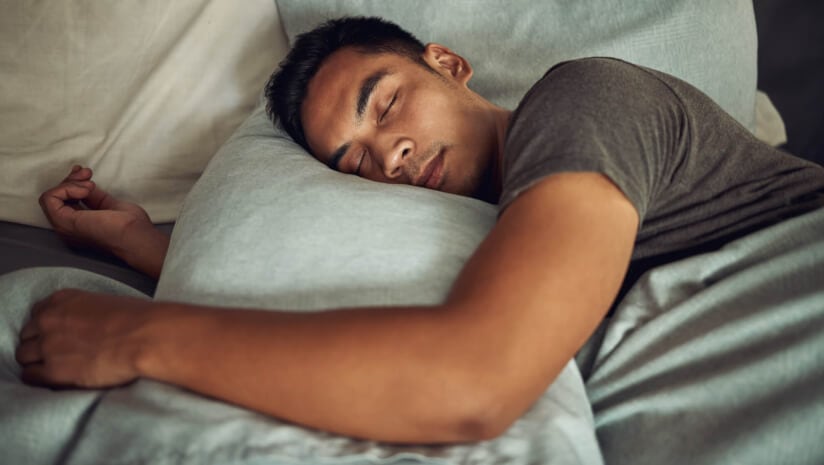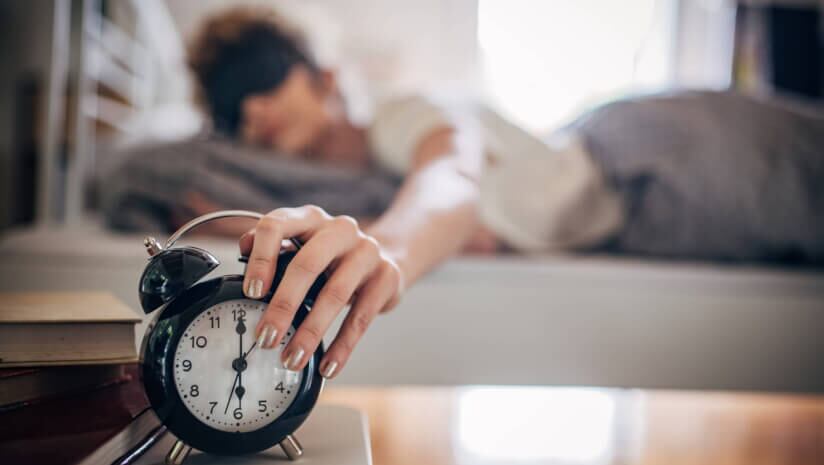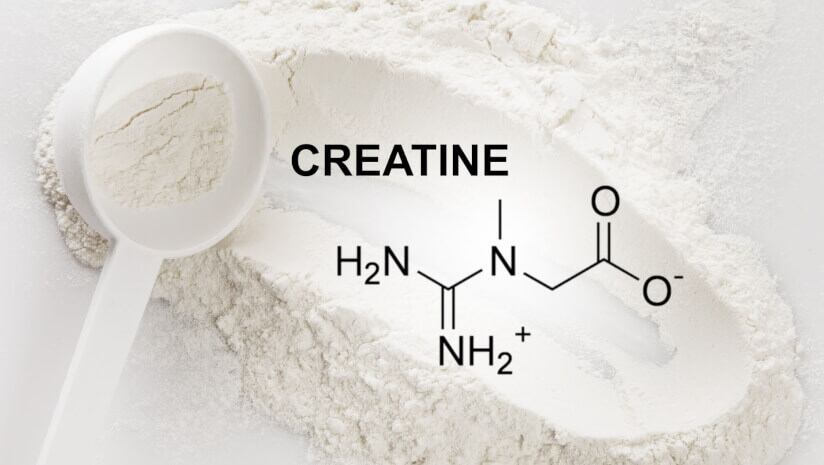Effects appear to involve several biological pathways that modulate inflammation, stress response, neurotransmitter activity and gut-brain signaling, and research spans diverse populations—from athletes and menstruating women to obese children with sleep difficulties.
According to Lumina Intelligence, sleep is no longer a secondary benefit but a category driver, topping the list of consumer health goals and driving the demand and search for natural sleep-promoting solutions.
Below a look back at some of the more recent studies investigating how supplements may contribute to a better night’s sleep.
Can a citrus-based supplement rival pharmaceuticals for better sleep?
Taking a supplement formulated from lime peels can help users get to and stay asleep—and with no side effects. Writing in the journal Phytomedicine, researchers described how the supplement Benesomno, supplied by Korean company Nutra-it, reduced sleep latency and enhanced sleep efficacy, as well as decreased daytime sleepiness in people.
A previous study by the researchers in 2024 in mice found that a standardized lime peel supplement resulted in a hypnotic effect that was comparable to Zolpidem, otherwise known as the common sleep-aid brand Ambien.
Nella probiotics may boost sleep and recovery for elite athletes and general population
A multi-strain probiotic consortium was shown to improve sleep quality and exercise recovery in elite Italian soccer players, with similar results observed in a cohort of people in the general U.S. population, according to a study conducted by scientists from Palermo Football Club and FitBiomics.
The combination of three athlete-derived probiotic strains—Lactiplantibacillus platarum FB00015, Lacticaseibacillus rhamnosus FB00047 and Lactobacillus acidophilus FB00012—is marketed as Nella by Fitbiomics.
Could kiwi and soccer improve sleep in obese children?
A study led by researchers in Tunisia presents kiwifruit and soccer play as potential strategy to counter childhood obesity, a growing global health concern linked to disrupted sleep patterns, including shorter sleep duration and poorer sleep quality.
Findings indicated that four weeks of small-sided soccer game (SSSG) training and daily consumption of kiwifruits positively impacted sleep patterns (bedtime, sleep efficiency, total time in bed, total sleep time, sleep latency).
Coupling creatine and resistance training may improve sleep in menstruating women
Combining a regimen of creatine supplementation and resistance training could increase sleep time in menstruating women, according to researchers from the University of Idaho and University of Regina.
Their study highlighted that women historically experience more sleep disturbances and overall poorer sleep than men and that current evidence suggests that creatine supplementation may have greater effects on the brain under stressful conditions.
Brazilian blend targets mood and sleep quality through the gut
A novel mineral-prebiotic-herbal supplement shows promise for tackling the waning of cognitive function in mood disorders brought on by unhealthy lifestyle, according to a team of Brazilian researchers, who evaluated effects of the blend on microbiota, inflammation, mood and sleep quality in a group of overweight adults.
Probiotic blend may boost sleep quality
Supplementation with Probiotical’s Bifizen blend led to improved sleep quality, increasing the ability to fall asleep and reducing daytime dysfunction. The blend combines Limosilactobacillus fermentum LF16 (DSM 26956), Lacticaseibacillus rhamnosus LR06 (DSM 21981), Lactiplantibacillus plantarum LP01 (LMG P-21021) and Bifidobacterium longum 04 (DSM 23233).
Surprise findings show sleep deprivation elevates circulating creatine
Researchers affiliated with the University of Novi Sad in Serbia unexpectedly found that sleep deprivation increased blood creatine levels, suggesting that more research is needed into the compound’s potential protective role in the sleepless.
Their study set out to examine how 24 hours of sleep deprivation would impact biomarkers of creatine metabolism in healthy adults, based on the hypothesis that it would increase creatine uptake in the brain under stress. Contrary to expectations, circulating creatine levels were not diminished.
Nestlé supplement blend targets glucose metabolism for better sleep
Mulberry leaf extract combined with tryptophan improves sleep and post wake mood in adults who struggle with sleep, according to research funded by Nestlé. The study, published in The European Journal of Nutrition, examined how evening meals with or without the supplement blend influenced nocturnal glucose metabolism to affect sleep and downstream outcomes beyond traditional metabolic health.
The blend, developed by Nestlé, includes mulberry leaf extract to lower postprandial glucose of the evening, tryptophan to facilitate sleep initiation, vitamin B, magnesium, zinc and nutrients to stimulate the body’s melatonin secretion.
Review explores L-theanine as sleep aid
L-theanine, an amino acid found in tea leaves, may improve sleep outcomes by crossing the blood-brain barrier to influence neurotransmitters in the central nervous system and promote brain relaxation, according to a scientific review.
“The findings of this review show the potential for L-theanine supplementation as a treatment option for the management of sleep disturbances,” the researchers wrote. “However, due to the limited number of studies investigating ‘pure’ L-theanine and the variations in study design, further investigation is warranted using a well-designed dose response trial in healthy and clinical populations with sleep disturbances.”
Herb combination may reduce stress and boost sleep quality
A combination of extracts from six herbs marketed as KaraCalm may reduce markers of inflammation, decrease stress scores and improve overall sleep quality. The supplement is formulated with extracts of valerian, purple passionflower, Holy basil, Jujube, rosemary and black cumin/black seed.
The supplement was also associated with a 39% increase in total sleep time, equivalent to gaining over two hours of sleep, a 70% decrease in the time to fall asleep and a 53% reduction in the number of awakenings after first falling asleep.
Probiotic combination may boost skin and sleep for women
Eight weeks of supplementation with Lallemand’s Cerebiome probiotic blend led to significant improvements in skin firmness, elasticity and hydration, as well better sleep. Data published in the International Journal of Probiotics and Prebiotics indicated that the combination of Lactobacillus helveticus Rosell-52 and Bifidobacterium longum Rosell-175 was also associated with improvements in stress.
The combination is supported by 10 clinical studies on stress and mental well-being plus multiple preclinical studies that reportedly show eight distinct mechanisms of action on the microbiome-gut-brain axis.
Low-dose valerian extract boosts sleep duration after just one dose
A proprietary, low-dose valerian extract may increase sleep duration on the first day of use and reduce the time it takes to fall asleep, according to a study evaluating the effects of the Sleeproot-branded sleep support ingredient developed by OmniActive Health Technologies.
“Valerian root has been used for centuries in traditional medicine to promote sleep and reduce anxiety,” said Kratika Gupta, vice president of marketing at OmniActive Health Technologies, which funded the research. “Modern studies confirm its ability to improve sleep quality, reduce sleep latency and support deep sleep through increased GABA activity.”
Skullcap shows promising results for sleep support
Supplementation with a skullcap extract may improve sleep quality scores in people with insomnia. The supplement showed carryover effects, suggesting its actions persist for at least a month after discontinuation, researchers from the University of Napoli Federico II and other institutions in Italy, New Zealand, Pakistan, and China reported in the journal Nutrients.
Isomaltulose drink at bedtime may support sleep
A low glycemic index drink formulated with Beneo’s Palatinose ingredient improved aspects of sleep architecture and memory consolidation. According to the data published in Nutrition Research, the isomaltulose drink was associated with increases in beneficial slow wave sleep and improved overnight retention of neutral story content compared to a high-glycemic index (HGI) drink but only when the LGI drink was consumed on the second test night.
“By supporting balanced blood sugar levels and prolonging the deep sleep phase, Palatinose may improve restful sleep and a person’s overall well-being,” said Dr. Stephan Theis, head of nutrition science and communication at Beneo. “Its ability to sustain blood sugar levels overnight may also have far-reaching implications for dietary interventions, targeting sleep disorders and cognitive decline.”
Multi-species probiotic may enhance vagus nerve function, improve sleep: RCT
A consortium of nine probiotic strains may improve morning vagal nerve function and gut microbiota composition in people with depression. Study participants who consumed Omni-Biotic Stress Repair, provided by Austria-based Allergosan, showed increased beneficial bacteria species and improved sleep scores compared to controls.
Spirulina supplement may improve sleep quality and mood
Supplementation with spirulina may have the potential to increase sleep quality and mood in people suffering from mild to moderately severe depression, according to researchers in Thailand.
Spirulina is naturally rich in tryptophan, an amino acid the body uses to produce serotonin and melatonin—chemicals in the brain that regulate mood and sleep-wake cycles. It also contains B vitamins, iron, magnesium, carotenoids and antioxidants like phycocyanin and gamma-linolenic acid that have inflammatory and antioxidant properties that might reduce stress and improve overall brain health.



